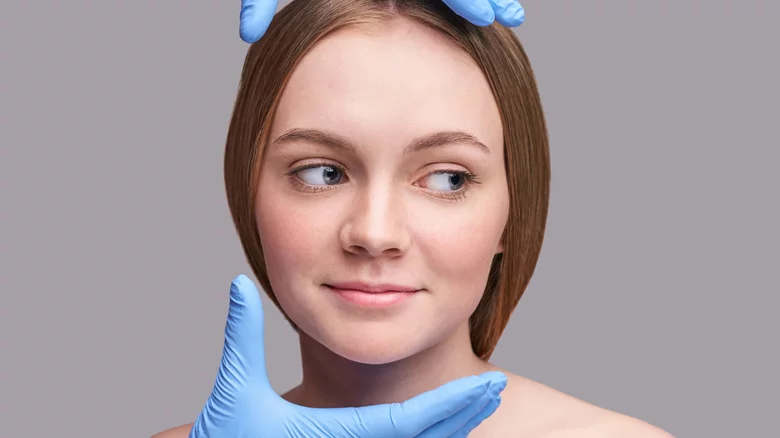Healthcare is a vast field, which is why every cell and organ of our body has its own discipline and specialists. Dermatologists specialize in dermatology, a medical specialty that deals with the skin, hair, and nails. When we experience distressing thoughts and behaviors that spiral out of control, we see a therapist or a psychiatrist, who are trained in psychology. As a general rule, we visit dermatologists for skin issues and therapists or psychiatrists for mental health concerns.
Psychodermatology is a field in psychosomatic medicine that combines dermatology and psychology/psychiatry. It may seem strange to some that these two seemingly unrelated disciplines can be related, but in fact, they are closely connected. Psychodermatology is a relatively new field that aims to understand the relationship between psychological and psychiatric factors and skin health. This field can help to improve dermatological treatments by taking into account the psychological and psychiatric factors that may be contributing to skin conditions. For example, stress and anxiety can exacerbate skin conditions like acne and eczema, and addressing these underlying psychological issues can help to improve treatment outcomes. Psychodermatology can also help to identify and treat conditions that may have both physical and psychological causes, such as body dysmorphic disorder or trichotillomania. Overall, psychodermatology is an important and growing field that is helping to advance our understanding of the relationship between the mind and the skin, and to improve treatments for skin condition.
Psychological reactions and skin disorders are related

Psychodermatology is a branch of medicine that looks at the connection between mental health and skin health. According to a 2007 study published in The Primary Care Companion to The Journal of Clinical Psychiatry, psychodermatologists use psychological and psychiatric techniques to study and treat skin disorders. They believe that the interaction between the neurological, immunological, cutaneous, and endocrine systems (also known as NICS) plays a role in the development of skin conditions. When a person experiences emotional distress and an inflammatory skin condition, their NICS becomes unstable.
Psychodermatology is the study of the relationship between the skin and the mind. It can be divided into four categories: psychophysiological disorders, primary psychiatric disorders, secondary psychiatric disorders, and miscellaneous.
Psychophysiological disorders are skin conditions that are worsened by emotional stress, such as eczema, acne, or psoriasis.
Primary psychiatric disorders are mental health conditions that cause skin conditions, rather than being caused by them. Examples of primary psychiatric disorders include bipolar disorder, schizophrenia, and post-traumatic stress disorder.
Secondary psychiatric disorders are mental health problems that are triggered by skin conditions, including social phobia, frustration, and low self-esteem.
The miscellaneous category includes any other conditions that fall under the umbrella of psychodermatology but do not fit into the other three categories.
Psychodermatology is the study of the psychological and emotional effects of skin conditions, and the ways in which these conditions can be treated through a combination of medical and psychological intervention. Emotions play a significant role in the development and exacerbation of skin conditions such as acne and rosacea. For example, stress and anxiety can trigger breakouts, and the presence of acne or other visible skin conditions can lead to feelings of shame and depression. This creates a vicious cycle, as primary psychiatric disorders can lead to skin conditions, which in turn can lead to secondary psychiatric disorders. In order to help patients break this cycle, specialists may use psychodermatology to provide a combination of medical and psychological treatment. A 2020 study published in The Journal for Nurse Practitioners highlights the importance of addressing both the physical and psychological aspects of skin conditions in order to effectively treat and manage these conditions.
How does psychodermatology help

Psychodermatology aims to understand the connection between a patient’s emotions and their skin condition. By addressing the emotional issues that may be contributing to skin problems, a dermatologist trained in psychodermatology can help patients overcome these challenges and develop coping strategies to manage difficult emotions. Rather than just prescribing medication, a psychodermatologist might recommend a combination of treatments, such as therapy and lifestyle changes, to address both the internal and external factors affecting the patient’s skin health. For example, if a patient has experienced a recent break-up and is suffering from a breakout, the dermatologist might suggest meditation therapy and advice on changing negative habits in addition to any necessary cosmetic treatments.
According to Dr. Heidi Williamson, a health psychologist, young people often worry about being judged negatively based on their appearance. This fear can lead to discomfort and self-consciousness, which can hinder the development of social skills. Psychodermatology is a comprehensive approach to skin care that aims to address both physical skin issues and the psychological factors that contribute to them. By addressing body image concerns and boosting confidence, psychodermatology can be a valuable tool for long-term skin health and well-being.



